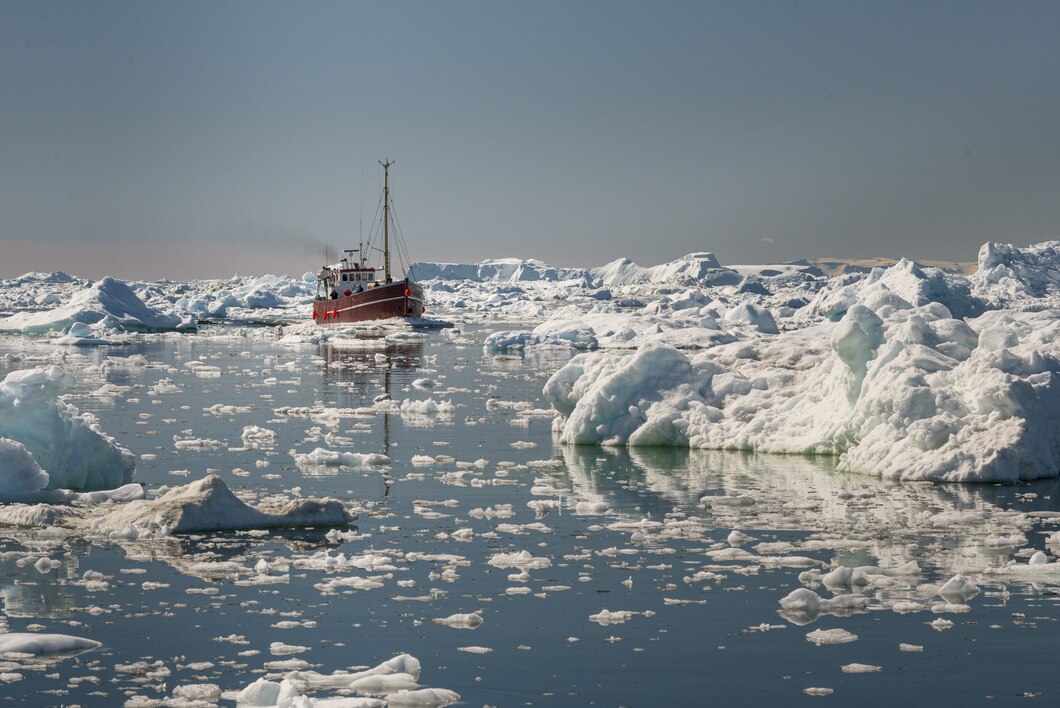
-
Table of Contents
Introduction
The North Sea is a large body of water located in the northeastern part of the Atlantic Ocean, bordered by the coastlines of several countries including Norway, Denmark, Germany, the Netherlands, Belgium, and the United Kingdom. It is a major hub for the oil and gas industry, with numerous offshore oil and gas platforms and rigs operating in its waters. As a result, there are often a variety of job opportunities available in the North Sea for those interested in working in the energy sector. These vacancies can range from engineering and technical roles to support and administrative positions.
Top In-Demand Jobs in the North Sea Oil and Gas Industry
The North Sea oil and gas industry has been a major contributor to the economy of the countries surrounding it for decades. With the discovery of vast oil and gas reserves in the 1960s, the North Sea has become one of the most important regions for the production of these valuable resources. As a result, there has been a constant demand for skilled workers in various roles within the industry. In this article, we will explore the top in-demand jobs in the North Sea oil and gas industry.
1. Offshore Drilling Engineer
Offshore drilling engineers are responsible for designing, planning, and supervising the drilling operations on offshore oil and gas rigs. They work closely with geologists and other engineers to determine the best location and method for drilling. This role requires a strong understanding of drilling techniques, as well as knowledge of safety regulations and environmental concerns. Offshore drilling engineers are in high demand in the North Sea due to the continuous need for new wells to be drilled and maintained.
2. Subsea Engineer
Subsea engineers are responsible for the design, installation, and maintenance of equipment and structures used in underwater oil and gas production. This includes pipelines, risers, and subsea production systems. They work closely with other engineers and technicians to ensure the safe and efficient operation of these systems. With the majority of oil and gas production in the North Sea taking place in deep waters, the demand for subsea engineers is expected to continue to rise.
3. Marine Engineer
Marine engineers are responsible for the design, construction, and maintenance of ships and other marine vessels used in the oil and gas industry. They work closely with naval architects and other engineers to ensure that these vessels are safe and efficient for use in offshore operations. With the North Sea being a major hub for offshore oil and gas production, the demand for marine engineers is high, and this trend is expected to continue in the coming years.
4. Health, Safety, and Environment (HSE) Specialist
HSE specialists play a crucial role in ensuring the safety and well-being of workers in the oil and gas industry. They are responsible for developing and implementing safety policies and procedures, conducting risk assessments, and providing training to workers. With the North Sea being a harsh and unpredictable environment, the role of HSE specialists is crucial in maintaining a safe working environment for all workers.
5. Project Manager
Project managers are responsible for overseeing all aspects of a project, from planning and budgeting to execution and completion. In the North Sea oil and gas industry, project managers are needed to oversee the construction of new rigs, pipelines, and other infrastructure, as well as the maintenance and repair of existing facilities. This role requires strong leadership and organizational skills, as well as a thorough understanding of the industry.
6. Instrumentation and Control Engineer
Instrumentation and control engineers are responsible for designing, installing, and maintaining the systems that control and monitor the production of oil and gas. This includes equipment such as sensors, valves, and control panels. With the increasing use of automation and technology in the oil and gas industry, the demand for instrumentation and control engineers is on the rise in the North Sea.
In conclusion, the North Sea oil and gas industry offers a wide range of job opportunities for skilled workers. From engineers and project managers to HSE specialists and marine engineers, there is a constant demand for professionals in various roles. With the industry expected to continue to grow in the coming years, these jobs will remain in high demand, making the North Sea a promising destination for those seeking a career in the oil and gas industry.
Navigating the Hiring Process for North Sea Offshore Positions
The North Sea is a vast body of water located between the United Kingdom, Norway, and Denmark. It is known for its rich oil and gas reserves, making it a hub for offshore oil and gas production. As a result, there are numerous job opportunities available in the North Sea for those looking to work in the offshore industry.

However, navigating the hiring process for North Sea offshore positions can be a daunting task. With so many companies and job openings, it can be overwhelming to know where to start. In this article, we will guide you through the process of finding and securing a job in the North Sea.
The first step in the hiring process is to research the companies operating in the North Sea. This will give you an idea of the types of jobs available and the qualifications and experience required for each position. Some of the major companies operating in the North Sea include Shell, BP, and Total. These companies have a strong presence in the region and offer a wide range of job opportunities.
Once you have identified the companies you are interested in, the next step is to search for job vacancies. Most companies have a careers section on their website where they post job openings. You can also use job search engines and online job boards to find vacancies in the North Sea. It is important to regularly check these sources as new job postings are added frequently.
When applying for a job in the North Sea, it is crucial to tailor your resume and cover letter to the specific job and company you are applying to. Highlight your relevant skills and experience, and make sure to include any offshore certifications or training you have completed. Employers in the North Sea are looking for candidates with a strong work ethic, excellent communication skills, and the ability to work well in a team.
If your application is successful, you will be invited for an interview. This may be conducted in person or via video conferencing, depending on the company’s location and your location. It is important to prepare for the interview by researching the company, understanding the job requirements, and practicing common interview questions. Be sure to also dress professionally and arrive on time for the interview.
If you are offered a job, the next step is to obtain the necessary certifications and training required for offshore work. This may include Basic Offshore Safety Induction and Emergency Training (BOSIET), Helicopter Underwater Escape Training (HUET), and Offshore Medical Certificate. These certifications are mandatory for working in the North Sea and can be obtained from accredited training providers.
Once you have completed the necessary training and certifications, you will be ready to start your new job in the North Sea. However, it is important to note that working in the offshore industry can be physically and mentally demanding. You will be working in a remote location, away from family and friends, and may be required to work long hours. It is important to be prepared for these challenges and have a strong support system in place.
In conclusion, the North Sea offers a wide range of job opportunities in the offshore industry. By researching companies, regularly checking for job vacancies, tailoring your application, and preparing for interviews, you can increase your chances of securing a job in this competitive market. Remember to also obtain the necessary certifications and training before starting your new job. With determination and hard work, you can navigate the hiring process and embark on a rewarding career in the North Sea.
The Benefits and Challenges of Working in the North Sea Oil and Gas Sector
The North Sea oil and gas sector has been a major contributor to the economy of the United Kingdom for decades. With its vast reserves of oil and gas, the North Sea has been a hub for employment opportunities in the energy industry. However, working in this sector comes with its own set of benefits and challenges.
One of the main benefits of working in the North Sea oil and gas sector is the high salary potential. Due to the demanding nature of the job and the specialized skills required, workers in this sector are often well-compensated. In fact, according to a report by Oil and Gas UK, the average salary in the sector is around £64,000, which is significantly higher than the national average.
Moreover, working in the North Sea also offers a unique opportunity for career growth and development. The sector is constantly evolving and adapting to new technologies and techniques, providing employees with the chance to learn and develop new skills. This not only adds value to their resume but also opens up new career opportunities within the industry.
Another benefit of working in the North Sea is the sense of camaraderie and teamwork among colleagues. Due to the remote and challenging nature of the job, workers often form strong bonds with their colleagues, creating a supportive and close-knit community. This can be especially beneficial for those who are new to the industry or working in a foreign country.
However, working in the North Sea oil and gas sector also comes with its own set of challenges. One of the main challenges is the demanding work schedule. Workers in this sector often have to work long shifts, sometimes up to 12 hours a day, for several weeks at a time. This can be physically and mentally exhausting, and can also take a toll on personal and family life.
Moreover, working in the North Sea also means being away from home for extended periods of time. Workers often have to live on offshore platforms or rigs for weeks or even months at a time, with limited access to family and friends. This can be particularly challenging for those with young families or those who are not used to being away from home for long periods.
Another challenge of working in the North Sea is the harsh and unpredictable weather conditions. The North Sea is known for its rough seas and strong winds, which can make working conditions hazardous. Workers have to be constantly vigilant and follow strict safety protocols to ensure their own safety and that of their colleagues.
Furthermore, the North Sea oil and gas sector is also facing challenges in terms of sustainability and environmental impact. With the increasing focus on renewable energy sources, the sector is under pressure to reduce its carbon footprint and adopt more sustainable practices. This can mean additional challenges and changes in the way work is carried out, which can be difficult for some workers to adapt to.
In conclusion, working in the North Sea oil and gas sector offers many benefits, such as high salaries, career growth opportunities, and a strong sense of community. However, it also comes with its own set of challenges, including demanding work schedules, being away from home for extended periods, and facing harsh weather conditions. As the industry continues to evolve and adapt, it is important for workers to be prepared for these challenges and to continuously develop their skills to stay competitive in the sector.
Conclusion
In conclusion, the North Sea region offers a wide range of job opportunities in various industries such as oil and gas, renewable energy, shipping, and fishing. With its strong economy and stable political climate, the North Sea continues to attract both local and international talent. However, the competition for vacancies can be high, and it is important for job seekers to have the necessary skills and qualifications to stand out in the job market. Overall, the North Sea remains a desirable location for job seekers looking for diverse and rewarding career opportunities.





